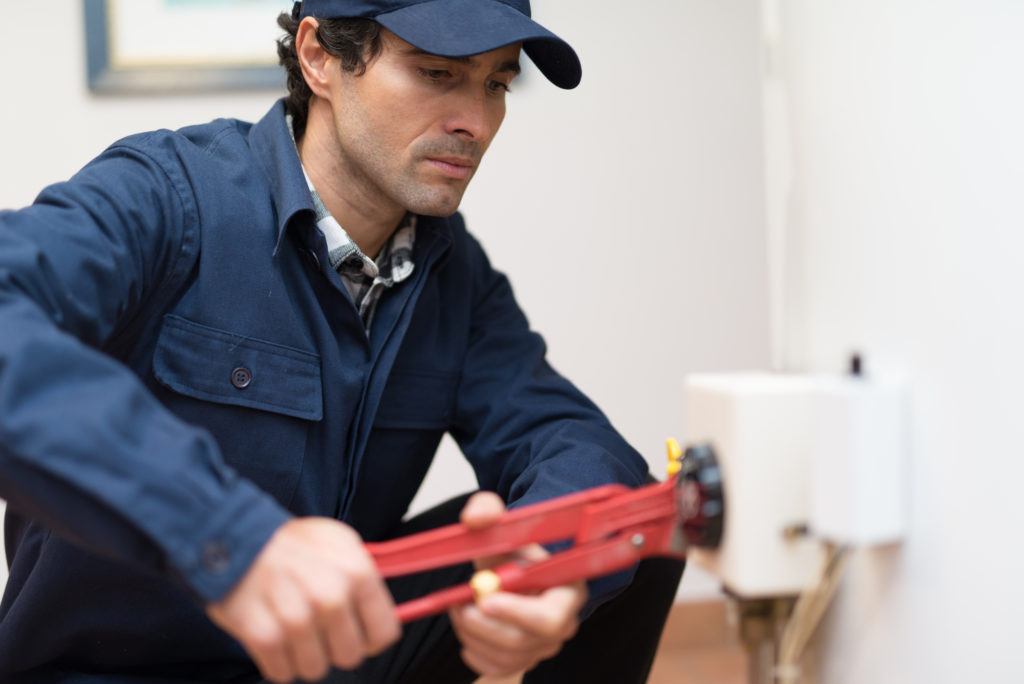Repairing Common Water Heater Problems
Repairing Common Water Heater Problems
Blog Article
Everyone has their private thinking when it comes to Common Problems with Tank Water Heaters.

Picture beginning your day without your regular hot shower. That already establishes an inadequate tone for the rest of your day.
Every house requires a dependable water heater, however only a few know exactly how to handle one. One very easy means to maintain your water heater in top shape is to check for faults frequently as well as repair them as quickly as they show up.
Bear in mind to switch off your hot water heater prior to smelling about for mistakes. These are the water heater faults you are most likely to encounter.
Water too hot or too cool
Every hot water heater has a thermostat that figures out exactly how hot the water obtains. If the water entering into your home is too warm regardless of establishing a practical maximum temperature level, your thermostat may be faulty.
On the other hand, also cold water might result from a stopped working thermostat, a busted circuit, or incorrect gas flow. As an example, if you use a gas hot water heater with a damaged pilot burner, you would obtain cold water, even if the thermostat is in best condition. For electric heating systems, a blown fuse may be the wrongdoer.
Insufficient warm water
Hot water heater come in lots of dimensions, depending on your hot water needs. If you run out of hot water prior to every person has had a bath, your water heater is as well tiny for your family size. You need to consider setting up a larger hot water heater storage tank or opting for a tankless water heater, which takes up less space and is much more resilient.
Unusual noises
There are at least five kinds of sounds you can learn through a hot water heater, however the most common interpretation is that it's time for the hot water heater to retire.
First off, you need to recognize with the typical sounds a hot water heater makes. An electrical heating unit might sound various from a gas-powered one.
Standing out or banging sounds usually indicate there is a slab of debris in your storage tanks, and it's time to cleanse it out. On the other hand, whistling or hissing noises might just be your valves allowing some pressure off.
Water leakages
Leaks can come from pipelines, water connections, shutoffs, or in the worst-case scenario, the storage tank itself. Over time, water will wear away the tank, and discover its escape. If this happens, you need to change your water heater immediately.
Nonetheless, before your adjustment your entire tank, be sure that all pipes remain in place and that each shutoff functions flawlessly. If you still need assistance determining a leakage, call your plumber.
Rust-colored water
Rust-colored water suggests among your hot water heater parts is worn away. Maybe the anode pole, or the tank itself. Your plumber will be able to identify which it is.
Lukewarm water
No matter how high you established the thermostat, you will not obtain any type of warm water out of a heating system well past its prime. A hot water heater's performance might decrease with time.
You will also obtain warm water if your pipes have a cross connection. This suggests that when you switch on a tap, hot water from the heater moves in together with regular, cold water. A cross link is simple to spot. If your warm water faucets still pursue closing the water heater shutoffs, you have a cross connection.
Discoloured Water
Rust is a significant reason for unclean or discoloured water. Rust within the water container or a stopping working anode pole might create this discolouration. The anode rod secures the tank from rusting on the inside as well as ought to be examined yearly. Without a rod or an effectively functioning anode pole, the warm water quickly rusts inside the container. Call a specialist water heater specialist to establish if changing the anode rod will repair the issue; otherwise, change your hot water heater.
Verdict
Preferably, your hot water heater can last one decade before you need a change. Nevertheless, after the 10-year mark, you might experience any of these faults much more frequently. At this point, you need to include a new hot water heater to your spending plan.
How To Troubleshoot 3 Common Water Heater Problems in Twin Cities
The Water Heater Is Leaking
A leaky cold water inlet valve A loose pipe fitting A leaky temperature and pressure relief valve A corroded anode rod A cracked tank Turn Off Your Water Heater:
Shut off your gas water heater by turning the gas valve on the unit to the “OFF” position. Shut off your electric water by switching its power off at your electrical panel. Look for a two-pole breaker labeled “water heater” and turn it to the “OFF” position. Move the ball valve connected to the water heater to be perpendicular to the piping at a 90° angle. Look for the Leak:
Depending on whether the water is coming from the tank's top or bottom, you’ll want to look for the leak in different locations.
If the leak comes from the top of the tank, carefully look for water escaping from the cold water inlet valve or loose pipe fittings. Rusted hot and cold water valves can have loose connections with the tank, with water leaking out of them.
https://mspplumbingheatingair.com/blog/how-to-troubleshoot-3-common-water-heater-problems
I'm very fascinated with Water Heater Repair and Troubleshooting and I hope you enjoyed reading my entry. Loved our blog entry? Please share it. Let somebody else check it out. Many thanks for taking the time to read it.
High-quality repairs here. Report this page